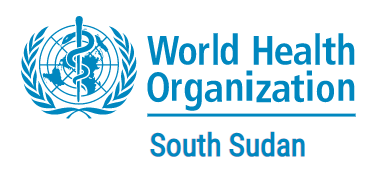In South Sudan, 19 of the 20 neglected tropical diseases are endemic, posing a huge health threat. More than 12 million people are at risk of infection from these diseases that can cause severe pain, disabilities and deformities among other devastating impacts.
The country, with support from the World Health Organization (WHO) and partners, has made efforts over the recent years to tackle the threat of neglected tropical diseases by providing drugs and bolstering preventive measures in a bid to accelerate progress towards ending these diseases.
Since 2021, nearly 17 million people in South Sudan have received treatment for river blindness, elephantiasis, bilharzia, trachoma and soil-transmitted worms. In a treatment drive in June 2023, health workers carried out a house-to-house mass drug administration against bilharzia, ensuring that eligible children received treatment regardless of whether they are infected or not.
Neglected tropical diseases are a set of 20 diseases or disease groups that occur predominantly in tropical and subtropical areas. They include lymphatic filariasis, more commonly known as elephantiasis, onchocerciasis or river blindness, schistosomiasis, or bilharzia, as well as human African trypanosomiasis, often called sleeping sickness, chronic ulcers and other skin infections.
“We are working hand in hand with our partners to reach communities across the country and ensure that populations at risk receive treatment and protection from these diseases,” said Hon Ader Macar Aciek, Undersecretary in the Ministry of Health. “The journey to eliminating neglected tropical diseases is a long one and we’re determined to finish the job by protecting everyone at risk so that they can live healthier lives.”
WHO has supported the Ministry of Health to develop and implement a Neglected Tropical Disease Master Plan 2023–2027. WHO has also supported the Ministry of Health to train health workers across the country in various aspects of neglected tropical diseases management, including treatment, diagnosis, mapping, mass drug administration, active case search and contact tracing.
The country’s Master Plan aligns with the 2030 Neglected Tropical Diseases Global Roadmap for elimination. The roadmap aims, among other goals, to eliminate targeted diseases such as bilharzia, river blindness, elephantiasis, intestinal worms and trachoma by 2030.
South Sudan’s master plan focuses on ensuring three fundamental shifts in the approach to tackling neglected tropical diseases, including increasing accountability for impact by using impact indicators, moving away from singular, disease-specific programmes and changing operating models and culture to facilitate greater ownership of the country.
“The medicine has helped us a lot. I no longer experience frequent sickness,” said Ernesto Tombe Swaka, a resident of Gondokoro in Juba County, who is benefitted from a recent mass drug administration campaign in his community. “The health workers educated us on the importance of taking the medicine, so I didn’t hesitate to take the drug on the first day of the mass drug administration.”
Several of South Sudan’s countries have more than one endemic neglected tropical diseases. Elephantiasis and river blindness are endemic in 34 counties, while bilharzia and intestinal worms are endemic in 46 counties. Thirty-five counties have endemicity of elephantiasis and intestinal worms, and 36 counties have Loa Loa Filariasis co-endemicity. The recent mapping of leprosy endemicity status indicates that all regions in the country are endemic for leprosy.
“We’re committed to supporting the Ministry of Health in the efforts to address the threat of neglected tropical diseases in the country,” said Dr Fabian Ndenzako, Acting WHO Representative in South Sudan. “Together, we’re working to ensure that the national plan is fully implemented to help end the threat of this disease and the suffering they cause.”
Distributed by APO Group on behalf of World Health Organization (WHO) – South Sudan.

